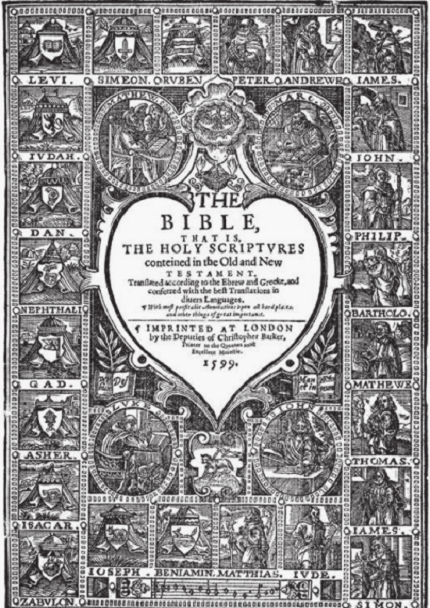With notes and annotations.

The Geneva Bible.
Who is the author of the Geneva Bible?
During the religious persecutions of Queen Mary’s reign, English Puritans sought refuge in Geneva, Switzerland, and wanted to produce an annotated Bible for the use of their families while in exile. In 1557, William Whittingham completed a New Testament, which included copious notes in the margins.
John Calvin, John Knox, Myles Coverdale, John Foxe, and several other Reformers may have collaborated on the Bible.
About the Geneva Bible:
The Geneva Bible was a version of the Bible that was first published in 1560 in Geneva, Switzerland. It was produced by English-speaking Protestant exiles who had fled England during the reign of the Catholic Queen Mary I.
Orginal Hebrew and Greek into English
The Geneva Bible was a translation of the Bible from the original Hebrew and Greek texts into English, and it was the first English Bible to be divided into chapters and verses. It was also the first English Bible to include study notes and annotations, which were intended to help readers understand the text and apply it to their lives.
Popular among the Puritans
The Geneva Bible was particularly popular among the Puritans and other English Protestants, and it was widely used in England during the reign of Queen Elizabeth I. It was also popular among the Pilgrims who settled in America, and it was the Bible that they brought with them on the Mayflower.
Revisions
The Geneva Bible was revised several times, and later editions were known as the “Breeches Bible” because of a mistranslation in Genesis 3:7. The Geneva Bible remained popular until the King James Version was published in 1611, which eventually replaced it as the standard English Bible.